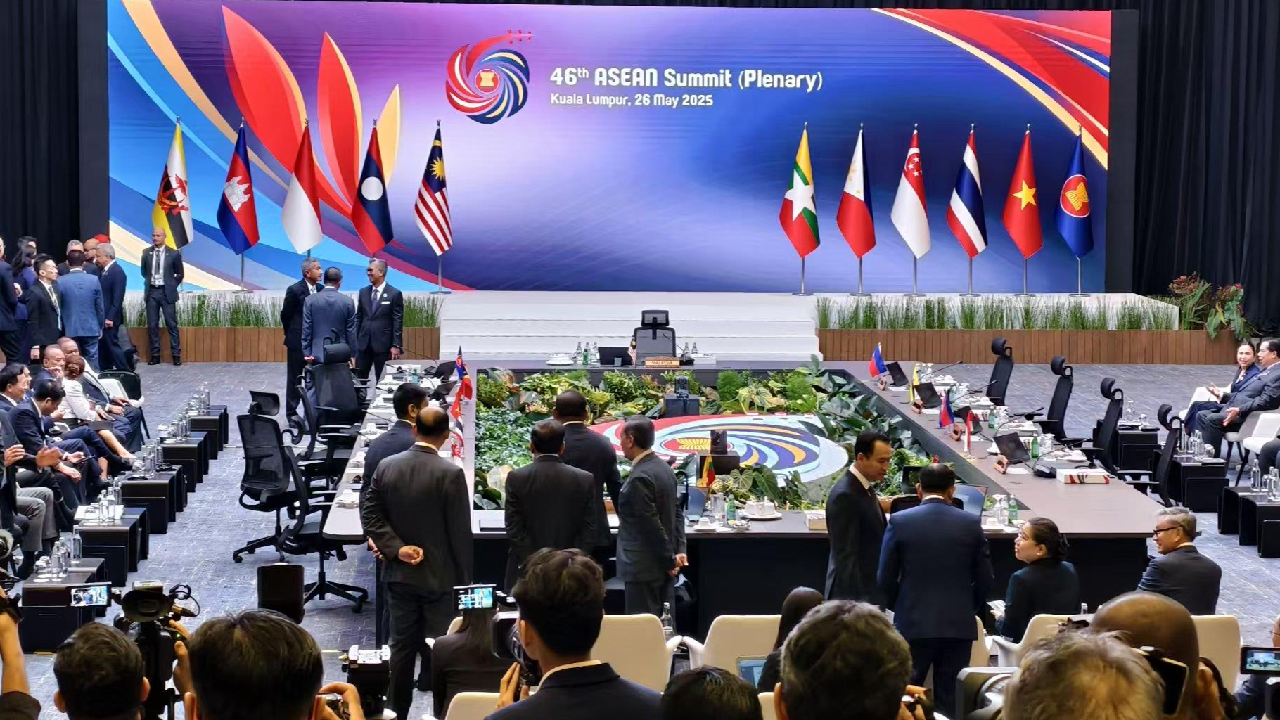ASEAN Summit Kicks Off in Malaysia to Strengthen Regional Integration and Resilience
ASEAN Summit kicks off in Malaysia, spotlighting regional integration and resilience efforts

The 46th Association of Southeast Asian Nations (ASEAN) Summit and its associated meetings commenced on Monday in Kuala Lumpur, with high-level delegations from across the region convening to address pressing challenges facing Southeast Asia. Greater regional integration and efforts to build resilience against trade and economic disruptions have emerged as key priorities during the opening sessions.
At the plenary session's opening ceremony, Malaysian Prime Minister Anwar Ibrahim called on all ASEAN member states to intensify their cooperation in confronting the uncertainties of a shifting global landscape. He highlighted the importance of not allowing the group's commitment to sustainable and equitable development to be overshadowed by current geopolitical tensions. Prime Minister Anwar emphasized that ASEAN's longstanding prosperity has relied on an "open, inclusive, rules-based international order" — principles now threatened by what he described as escalating unilateral actions and protectionist measures around the world.
"For ASEAN, our peace, stability and prosperity have often depended on an open, inclusive, rules-based international order, anchored in the free flow of trade, capital and people. These foundations are now being dismantled under the force of arbitrary action," Anwar stated, addressing the assembled leaders and ministers. He further noted the disruptive impact of recent U.S. unilateral tariffs, warning that the resurgence of protectionist policies and the fraying of multilateralism could pose serious risks to ASEAN economies already grappling with global uncertainty.
The summit agenda also puts a spotlight on the need to bolster collaboration with partner nations. Anwar underscored the significance of the first-ever ASEAN-China-GCC summit, which convenes ASEAN members alongside China—recognized as the region’s largest trading partner—and the Gulf Cooperation Council (GCC). This unprecedented gathering aims to explore avenues for enhanced economic cooperation and political dialogue, reflecting ASEAN's growing emphasis on diversified partnerships amid evolving global dynamics.
Malaysia holds the ASEAN chairmanship for 2025 and is hosting this year’s summit under the theme "Inclusivity and Sustainability." The progression of discussions and decisions at the summit is expected to shape the policy direction in Southeast Asia for the coming year, as the region seeks to uphold its unity and address both economic and security concerns in an increasingly complex international environment.
Founded in 1967, ASEAN is comprised of ten member states: Brunei, Cambodia, Indonesia, Laos, Malaysia, Myanmar, the Philippines, Singapore, Thailand, and Vietnam. As the summit continues, all eyes remain on how the organization will navigate the intricate balance of national interests and collective goals amid heightened geopolitical shifts.




